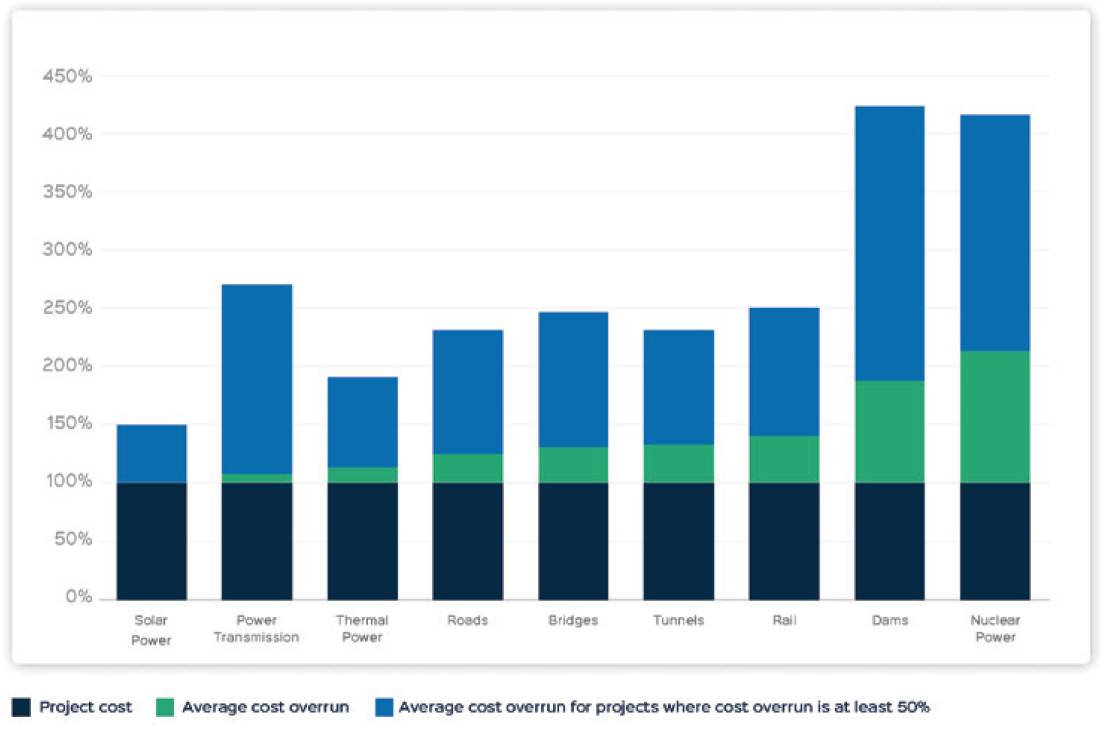Project success through model leadership
Andrew McNaughton, Infrastructure Sector Lead, Aczel Mark Coates, International Director of Public Policy and Advocacy, Bentley Systems


THE world of complex construction projects is becoming dominated by a growing volume of diverse technologies that promise vastly improved outcomes. However, advancing technology alone won’t guarantee success.
Today, project stakeholders must question the personal characteristics that are valued in the leaders of today and critically examine whether the model leadership skills that have been prioritised over decades are still fit for the future.
Historically, many large capital projects deliver poor performance, leading to overruns in both time and cost. Studies have shown that the outcomes of over 70% of major infrastructure projects have disappointed their owners.
These problems continue despite extensive industry research into the reasons behind them. These studies have identified several causes, including issues relating to a process or system failing, or problems relating to technical knowledge and implementation.
Quality and calibre
Given continuing performance-related issues in construction, we must challenge whether leadership skills, an essential piece of the puzzle for the success any major project, have received scrutiny their merits.
An investigation into the characteristics of successful leaders is long overdue for project delivery across multiple sectors.
Leadership is often cited as a critical component of project delivery, as the quality and the calibre of leaders have the potential to make a dramatic impact on the outcome.
Much has been written about leadership in a project delivery environment, and how strength and resilience are needed alongside subject matter expertise.
Less focus has been given to the soft skills necessary to deliver in a project environment that is multidisciplined, culturally diverse, and within a dispersed project community and a complex stakeholder environment.
When considering the scope of a future megaproject, we need to question the capability of leaders to master the breadth of knowledge necessary for bringing all elements together in an increasingly complex system environment.
This environment calls for leaders to have a confident self-awareness that acknowledges the limits of their experience. In such situations, the ability to offer leadership that brings together a group of individuals with the relevant experience along with the knowledge that they are valued as part of a team is essential.
Characteristics
In a recent New Civil Engineer article, leadership, collaboration, and teamwork were cited as common characteristics of the winners of the British construction industry awards, where successful projects were defined as having strong leadership and high-performing teams.
In examining the perception of what strong leadership means in a complex world, we must ask whether the traditional sense of need for a warrior or a heroic leader is sustainable now and in the future.
 Counting the cost: Overspends by sector.
Counting the cost: Overspends by sector.It can be argued that scale is a consideration, and that the application of project management approaches based around processes and focused on deliverables is appropriate for projects of modest scale.
However, this argument becomes fundamentally flawed when considering the increased complexity of projects resulting from their technologically advanced and dependent nature.
The leadership model should recognise the diversity of skills and experience needed to embrace all considerations of the project system at the right stage to create a plan for successful delivery.
Equally, it should recognise the depth and breadth of soft skills needed at different stages of project development and delivery.
Much has been written about leadership in a project delivery environment, and how strength and resilience are needed alongside subject matter expertise.
The leader in a complex project environment must have ownership of the outcome, set a clear vision and direction for all parties involved, and be passionate about its delivery.
Meanwhile, the ability to communicate at all levels within the team and with a multitude of stakeholders – aligned with skills to mentor, coach, negotiate, and influence to support high performance and collaboration – are key characteristics.
Project leaders of the future will need a balance between hard project management-related skills and soft skills that enable the nurturing and development of teamwork and followership towards the common outcome.
Here in the United Kingdom, there is a recognition that the art of project delivery leadership is changing, especially through the UK’s government, with sponsorship coming from organisations such as the infrastructure Projects Authority (IPA).
Nick Smallwood, the CEO of IPA, said in a recent interview with Civil Service World: “A lot of people talk about the need for us to innovate. But sometimes, I think we should just look at what we have and implement that at a faster pace and scale. This would get us nearly all the way to the journey that we’ve committed to.”
This sentiment is captured in the IPA’s Transforming Infrastructure Performance (TIP) programme that accompanies the National Infrastructure plan, and further highlights that people need the tools and capability to deliver. If the desired characteristics in terms of both hard and soft skills can accommodate the capability needed, then there are key questions to be addressed.
Project leaders of the future will need a balance between hard project management-related skills and soft skills.
As an industry, do we place enough value in developing these skills? Are there enough development paths for individuals to gain both formal training and experience to prepare for leadership roles on complex projects? Are we open-minded enough to accept a diversity of learning and experience in project leaders? Is it too early to start learning leadership skills at the undergraduate level?
The pace of change in society will never be this slow again, and with change comes increasing complexity in a world of a system of systems.
To deliver projects in this environment, we need leaders that go beyond the warrior model to develop a breadth of soft skills and behaviours commensurate with the demands placed upon them.
The pace of change in society will never be this slow again, and with change comes increasing complexity in a world of a system of systems.
There is no single route for the development of the appropriate soft skills. Individuals can gain them from learning and experiences throughout their careers.
However, as an industry, we must be deliberate in broadly articulating the characteristics necessary for future leaders and create a pipeline of talent to meet the challenges to come.
To create the pipeline, we must embrace the fact that talented individuals can come from a range of professional backgrounds and not simply from traditional sources.
As projects become more collaborative, we must expect professional bodies and places of learning to be more connected and engaged in nurturing the full breadth of attributes of leadership from an early stage.
There are many factors that contribute to the project delivery performance. However, having high-calibre leaders capable of navigating an increasingly complex environment is a prerequisite for delivering successful outcomes.
Andrew McNaughton, Infrastructure Sector Lead, Aczel and Mark Coates, International Director of Public Policy and Advocacy, Bentley Systems
Printed with kind permission of Bentley Systems